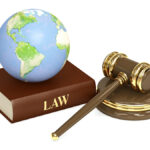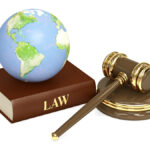If you believe you need to bring an environmental claim against another party or if you are facing an environmental claim, it is important to have Tacoma environmental law lawyers handling your case who will explore different alternative dispute resolution1 options whenever possible. One option that can save you time, money and energy is mediation. […]

Category Archives: Environmental Law
Many companies produce waste as part of their operations and much of this waste is potentially hazardous to your health. The Environmental Protection Agency (EPA) reports1 that companies produce an estimated 40 million tons of hazardous waste in the United States on an annual basis. This waste can cause illness, birth defects, and other serious […]
If you own a company, it is always important to comply with any applicable environmental laws involving clean air, clean water, waste disposal, and more. However, you may still be surprised to find your operation facing a legal action for environmental wrongs. These claims are often based on allegations of environmental nuisance and the claims […]
The U.S. Supreme Court stepped in earlier this year after the Environmental Protection Agency (EPA) established national caps on the release of mercury and other toxic emissions from power plants. In establishing the Mercury and Air Toxics Standards (MATS), the agency weighed the health benefits of the new standards and concluded that the rule would […]
Many environmental disasters—such as hurricanes, tornadoes, or earthquakes—are beyond human control. Therefore, outside of insurance coverage, it can be difficult to recover for losses suffered in these disasters. However, some environmental disasters are the result of human action by corporations or other parties. If this is the case, such parties may be held liable for […]

Water is one of the most valuable and important resources to many businesses and property owners throughout the state of Washington. Recently, water has become even more valuable considering Governor Jay Inslee officially declared a statewide drought emergency1 back in May 2015. Streams and rivers have reached historically low levels and the large majority of […]

The Environmental Protection Agency,1 often referred to as the EPA, is a federal agency that is tasked with protecting the environment and human health by writing and enforcing regulations that are promulgated pursuant to federal law. The agency is divided into 10 regional offices, with the Pacific Northwest and Alaska falling under the purview of […]

Streams and drainage systems are imperative to farmland not only to keep fields properly irrigated but also to prevent flooding, especially in times of excess rain. However, the Environmental Protection Agency (EPA)1 along with the Army Corps recently issued a new rule under the Clean Water Act2 that may add costs and complications to a […]

Many construction and developmental projects may have a significant impact on the surrounding environment. In order to minimize environmental costs, the government often requires that a business or other entity submit a report called an environmental impact statement (EIS)1 to the local government planning board2 for consideration when deciding whether to grant the necessary licenses […]

Legislators in the state of Washington take environmental concerns very seriously and make it a priority to ensure that all residents have a clean, healthy, and safe place to live and work. In order to do so, lawmakers and the Washington Department of Ecology pass and enforce numerous laws and rules that must be followed […]


